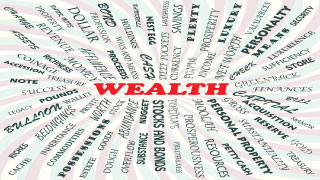- Home
- Business Processes
- Industry Knowledge
- Aerospace Industry
- Automotive Industry
- Banking Domain
- BFSI Industry
- Consumer/ FMCG Industry
- Chemicals Industry
- Engineering & Construction
- Energy Industry
- Education Domain
- Finance Domain
- Hospitality Domain
- Healthcare Industry
- Insurance Domain
- Retail Industry
- Travel and Tourism Domain
- Telecom Industry
- Leadership Skills
- eLearning
- Home
- Industry Knowledge
- BFSI Industry
- Banking Industry Value Chain - Economic Benefits of Banking
Banking Industry Value Chain - Economic Benefits of Banking
Banks and other institutions play this critical role by performing services essential to the functioning of an economy. Safeguarding, transferring, lending, and exchanging money in various forms, along with evaluating the credit-worthiness of customers, are the main functions that banks perform. Learn more about the role that banks play in shaping economies, their importance in the modern, global economy, and why they are important for nations as a whole.
Banks and other institutions play a critical role in any nation’s economy by performing services essential to the functioning of any economy. Safeguarding, transferring, lending, and exchanging money in various forms, along with evaluating creditworthiness of customers, are the main functions that banks perform. Each of these roles has a ripple effect in the economy that helps keep money moving. In this article, we will discuss the economic functions of banking:
Spreading the Wealth:
 Banks are critical to the economy. The banking industry is a vital component to the individual, business, national, and global financial well-being. Although there are many ways that money moves around the economy, banks play a central role in establishing the financial environment. Transferring money to provide growth and stabilizing the monetary supply are important functions performed by banks. This industry builds and maintains financial relationships with customers of all sizes to supply financial products and services that stimulate economic growth. Lending by banks makes money available to consumers and businesses to make purchases they might not otherwise be able to make.
Banks are critical to the economy. The banking industry is a vital component to the individual, business, national, and global financial well-being. Although there are many ways that money moves around the economy, banks play a central role in establishing the financial environment. Transferring money to provide growth and stabilizing the monetary supply are important functions performed by banks. This industry builds and maintains financial relationships with customers of all sizes to supply financial products and services that stimulate economic growth. Lending by banks makes money available to consumers and businesses to make purchases they might not otherwise be able to make.
Issuing Money:
 Banks issue money in the form of banknotes and current accounts subject to check or payment at the customer's order. These claims on banks can act as money because they are negotiable or repayable on demand, and hence valued at par. They are effectively transferable by mere delivery, in the case of banknotes, or by drawing a check that the payee may bank or cash.
Banks issue money in the form of banknotes and current accounts subject to check or payment at the customer's order. These claims on banks can act as money because they are negotiable or repayable on demand, and hence valued at par. They are effectively transferable by mere delivery, in the case of banknotes, or by drawing a check that the payee may bank or cash.
Payment Agents:
 Banks borrow money by accepting funds deposited on current accounts, by accepting term deposits, and by issuing debt securities such as banknotes and bonds. Banks lend money by making advances to customers on current accounts, by making installment loans, and by investing in marketable debt securities and other forms of money lending. Banks act as payment agents by conducting checking or current accounts for customers, paying cheques drawn by customers on the bank, and collecting cheques deposited to customers' current accounts.
Banks borrow money by accepting funds deposited on current accounts, by accepting term deposits, and by issuing debt securities such as banknotes and bonds. Banks lend money by making advances to customers on current accounts, by making installment loans, and by investing in marketable debt securities and other forms of money lending. Banks act as payment agents by conducting checking or current accounts for customers, paying cheques drawn by customers on the bank, and collecting cheques deposited to customers' current accounts.
Money Transferring:
 Banks move money. They move it between banks, between banks and individual customers, between banks and industry, between banks and governments, and sometimes between governments. Sometimes the sums involved are huge. This motion of money throughout the nation and the world allows businesses to have access to capital. With capital to invest, businesses expand, job creation occurs, products are manufactured, services are performed, and the economy grows.
Banks move money. They move it between banks, between banks and individual customers, between banks and industry, between banks and governments, and sometimes between governments. Sometimes the sums involved are huge. This motion of money throughout the nation and the world allows businesses to have access to capital. With capital to invest, businesses expand, job creation occurs, products are manufactured, services are performed, and the economy grows.
Distribution of Funds:
 The industry players produce an assortment of services from savings accounts to home and business loans and mortgages. Money is a medium of exchange and the basis of the modern economy. Banks play a huge role in the distribution of funds throughout society. Although there are many institutions involved in the movement of money today, banks remain fundamental to the flow of money that maintains local, national, and global economies.
The industry players produce an assortment of services from savings accounts to home and business loans and mortgages. Money is a medium of exchange and the basis of the modern economy. Banks play a huge role in the distribution of funds throughout society. Although there are many institutions involved in the movement of money today, banks remain fundamental to the flow of money that maintains local, national, and global economies.
Safeguarding Money:
 Safeguarding the holdings of people may be the oldest bank function. Long before banks existed, people looked for ways to secure their valuables, whatever the medium of exchange. Many of these you may easily imagine. Banks are generally accepted and believed to be a safer place for parking money. In some societies, such as Babylonia about 2000 B.C., people began to store money in temples, perhaps because they thought others would be less likely to steal from houses of gods. Ancient records indicate that about 4,000 years ago temples were in the business of lending and exchanging money. At that time, temples were acting as banks.
Safeguarding the holdings of people may be the oldest bank function. Long before banks existed, people looked for ways to secure their valuables, whatever the medium of exchange. Many of these you may easily imagine. Banks are generally accepted and believed to be a safer place for parking money. In some societies, such as Babylonia about 2000 B.C., people began to store money in temples, perhaps because they thought others would be less likely to steal from houses of gods. Ancient records indicate that about 4,000 years ago temples were in the business of lending and exchanging money. At that time, temples were acting as banks.
You may think of a bank vault or a safe-deposit box when you think of safeguarding money, and those onsite measures are certainly ways of protecting valuable assets. Banks also offer locker facilities which is a guarded strong room where people can keep their valuables on paying a small amount of fee for hiring lockers.
Record Keeping:
 Record keeping is an important part of securing your money. Banks devote much time and attention to both the practice and technology of maintaining and storing accurate records. If banks expect you to let them hold and use your money, you expect them to keep careful track of it. The same principle applies to large transactions between banks and industry and between banking institutions and the government.
Record keeping is an important part of securing your money. Banks devote much time and attention to both the practice and technology of maintaining and storing accurate records. If banks expect you to let them hold and use your money, you expect them to keep careful track of it. The same principle applies to large transactions between banks and industry and between banking institutions and the government.

Security & Identification:
 Identification is an important security function of banking. Obviously, you do not want unauthorized people walking in and taking money from your account, but the issue of security and identification goes far beyond the local branch. Identifying theft is a growing concern in the economy, and bank officials work closely with technology experts and law-enforcement agencies to prevent various forms of identity theft.
Identification is an important security function of banking. Obviously, you do not want unauthorized people walking in and taking money from your account, but the issue of security and identification goes far beyond the local branch. Identifying theft is a growing concern in the economy, and bank officials work closely with technology experts and law-enforcement agencies to prevent various forms of identity theft.
Identity theft occurs when someone achieves financial gain by using another person's personal information to unlawfully assume the identity of the other person. An identity thief conducts transactions illegally for personal gain. With the increased reliance on the Internet for financial transactions, identity theft protections extend beyond conventional checking accounts to include online banking, automatic bill pay, and online shopping.
Enforcement:
Enforcement is a part of safeguarding money that involves catching those who attempt to take it. Not only does this function involve physical security, but it also includes tracking down fraud, making collections, and pursuing legal actions against those who inflict losses on the bank. Robbers, white-collar embezzlers, or people who default on loans are all included in the group targeted by enforcement efforts.
Plastic Money:
 Transfer security is important to banks. Although cash is still an important part of bank transactions, most money moves merely on computer screens. High-tech security measures are increasingly more critical to banking operations between banks and customers, between banks and banks, and between banks and the government. As all financial intermediaries become more dependent on electronic banking, technological security takes on a more significant role.
Transfer security is important to banks. Although cash is still an important part of bank transactions, most money moves merely on computer screens. High-tech security measures are increasingly more critical to banking operations between banks and customers, between banks and banks, and between banks and the government. As all financial intermediaries become more dependent on electronic banking, technological security takes on a more significant role.
Sound Business Practices:
Sound business practices also safeguard your money. Most of these involve good judgment and management of daily bank operations. Banks invest time and money to train employees in procedures and practices. Training goals include ensuring accuracy, encouraging good decision-making regarding the credit-worthiness of prospective customers, and teaching how to make sound financial decisions. Federal and/or state bank examiners closely review the records of banks to protect consumers. Their examinations include not only the accuracy of records but also the prudence of banks' policies.
Exchange Rates:
 In international banking, exchange rates measure the relative strength of one form of a currency against another. These variable rates are often indications of the strength of a nation's economic position. The ability to transfer sums of money between financial institutions safely and effectively depends on the stability of the institutions, the stability of the countries where the banks reside, and the security of the money supply itself.
In international banking, exchange rates measure the relative strength of one form of a currency against another. These variable rates are often indications of the strength of a nation's economic position. The ability to transfer sums of money between financial institutions safely and effectively depends on the stability of the institutions, the stability of the countries where the banks reside, and the security of the money supply itself.
Evaluating Creditworthiness:
Banks play an important role in a productive economy, helping businesses and consumers take appropriate risks. Appropriate risk means that banks must lend money only to those who'll be able to repay those loans. A creditworthy customer has a good credit rating, sufficient collateral for loans, and an ongoing income source sufficient to make timely loan payments. Evaluating the creditworthiness of customers, whether they are large industries, governments, or individual consumers, is a critical banking function that affects the economy. Banks lend money to ordinary commercial and personal borrowers (ordinary credit quality) but are high-quality borrowers by evaluating loan applications carefully.
Guaranteeing the Money:
 Banks must contribute to implementing positive changes to ensure consumer protection, transparency, and responsible lending. They need to work closely with regulatory bodies to help shape initiatives and regulations. They must also ensure they take appropriate risks in their lending activities. In most countries, banks and the government work together to form the banking system and to make sure the money supply is adequate, appropriate, and trustworthy. Much of this guarantee is backed through the central banking function of the Central Bank of the Country. Individual banks also work with the government to implement monetary policy, perform exchange functions for citizens, defeat counterfeiters of currency, and prevent identity theft.
Banks must contribute to implementing positive changes to ensure consumer protection, transparency, and responsible lending. They need to work closely with regulatory bodies to help shape initiatives and regulations. They must also ensure they take appropriate risks in their lending activities. In most countries, banks and the government work together to form the banking system and to make sure the money supply is adequate, appropriate, and trustworthy. Much of this guarantee is backed through the central banking function of the Central Bank of the Country. Individual banks also work with the government to implement monetary policy, perform exchange functions for citizens, defeat counterfeiters of currency, and prevent identity theft.
The Substance of Society:
The functions that banking institutions perform do more than move money through the economy. They also provide a common economic system that is built primarily on trust. A great part of an economic system is psychological. It is our belief and trust in the financial system that keeps the financial system going.
Banking Domain Knowledge - Resources
Related Links
You May Also Like
-
Definition of Bank: Meaning of the term Bank and the Business of Banking
What do we mean by the word bank? How did the word bank originate? What is the most simple and concise definition of a bank that explains the fundamentals of the banking process? Does the definition of banking vary from country to country? What are the key differentiators between any other business and a Bank? Get answers to all these questions and explore the basics of bank and banking as an industry.
-
History of Banking: Evolution of Banking as an Industry
Banking is one of the oldest industries and banking in the form that we know of began at about 2000BC of the ancient world. It started with merchants making grain loans to farmers and traders while carrying goods between cities. Since then, the banking industry has evolved from a simplistic barter system and gift economies of earlier times to modern complex, globalized, technology-driven, and internet-based e-banking model. In this article, we will take you through the major events and developments in the history of the banking industry.
-
History of Banking: Famous Banks from the Past
Seven hundred years ago a bank was established in Venice, which made transactions resembling modern banking. In 1407, another bank was founded in Italy under the name of Banco di San Giorgio which was one of the oldest chartered banks in Europe. Sveriges Riksbank (Riksbanken), is the central bank of Sweden and the world's oldest central bank. The Bank of England is the second oldest central bank in the world, and most modern central banks have been based on that model. Let us explore some interesting events as we learn more about these early banking institutions.
-
History of Banking: The Gold Standard & Fractional Reserve Banking
Gold has always been considered as a safe economic investment and treated like a currency. All of the economically advanced countries of the world were on the gold standard for a relatively brief time. Under a gold standard, the value of a unit of currency, such as a dollar, is defined in terms of a fixed weight of gold and banknotes or other paper money are convertible into gold accordingly. Explore the fascinating history of the gold standard through the lens of history and also learn why banks hold back a certain fraction of deposits as reserves.
-
Overview of Banking Industry: The Industry Basics
Banks play a key role in the entire financial system by mobilizing deposits from households spread across the nation and making these funds available for investment, either by lending or buying securities. Today the banking industry has become an integral part of any nation’s economic progress and is critical for the financial wellbeing of individuals, businesses, nations, and the entire globe. In this article, we will provide an overview of key industry concepts, main sectors, and key aspects of the banking industry’s business model and trends.
-
Banking Sector, Segments & It's Classifications
The banking industry players deal in a variety of products from savings accounts to loans and mortgages, offer various services from check cashing to underwriting, caters to different types of customers from individuals to large corporates, serve diverse geographies from rural villages to cross-border operations. Thus the banking industry is made up of several types of banks, with their own objectives, roles, and functions. In this article, we will explore the various sectors, segments, and classifications of banking based on parameters like products, customers, types, etc.
-
Type of Banks: Different Types of Banks in India & their Functions
This article explains the banking structure in India and how different banks are classified as per RBI Norms. The Indian banking industry has been divided into two parts, organized and unorganized sectors. The organized sector consists of Reserve Bank of India, Commercial Banks and Co-operative Banks, and Specialized Financial Institutions (IDBI, ICICI, IFC, etc.). The unorganized sector, which is not homogeneous, is largely made up of money lenders and indigenous bankers. Learn what we mean by nationalized banks, scheduled banks, public sector banks, private banks, and foreign banks.
-
Types of Banks: Different Banks & their Classifications (Global)
The banking industry caters to various sections of society thus the focus of banking becomes varied, catering to the diverse needs of clients through different products, services, and methods. To meet this, we need distinctive kinds of banks addressing complex business & social needs. In this article, we will explain various types of banking institutions ranging from retail banks, commercial banks, co-operative banks, investment banks, central banks to various other types of specialized banks.
-
Banking Operations: Understanding Various Transactions & Activities
Banks perform a variety of operations ranging from basic or primary functions like day to day transactions at a branch to others that maybe the agency or general utility services in nature. The transactions that are incidental to revenue/sales or sustaining the business are an important element of the banking industry value chain. In this article, we will look at the key operations performed in the course of banking.
-
Banking Industry Business Model - Understanding How the Banking System Works
Banks are commercial profitable institutions and need to increase their business, grow their revenue, and provide returns to their owners. Unlike other stores and shops, banks are providing services rather than selling their products. Learn how banks get their funds and how they make money on services. Read more to learn how the banks earn their profit!
Explore Our Free Training Articles or
Sign Up to Start With Our eLearning Courses

About Us
Learning
© 2023 TechnoFunc, All Rights Reserved










